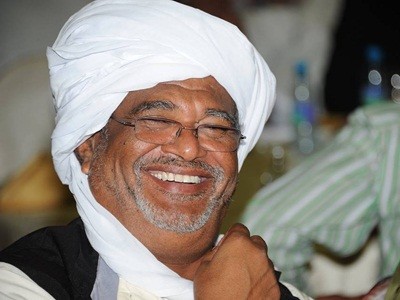Are These Men Islamists?

By Dr. Abdel Latif Al-Bouni
I entered university with my brother (now Mr.) Dafallah Haj Ali on the same day. He graduated in 1978 with a general Bachelor’s degree (four years), while I graduated in 1979 with an Honours Bachelor’s degree (five years). As for Mr. Omar Mohamed Ahmed Siddiq, known as Omar Siddiq, he joined university a year after us and graduated in 1979 with a general Bachelor’s degree, i.e., four years. So, if Dafallah was my proper classmate, Omar was my graduation mate. I met Omar later during the master’s program, and we lived in the same room.
So, these two gentlemen were as familiar to me as my own hunger. Neither was politically active, nor known to have any particular political affiliation. Dafallah and his group were modern in style — city boys in terms of dress and appearance — and far removed from the Islamic movement, specifically. Omar, on the other hand, was known as a “study freak,” spending most of his time in the library, and was nicknamed Omar “The Great.” To this day, his university peers would only recognize him if you said “Omar the Great.” His slender build is thanks to diabetes, perhaps a blessing in disguise.
Both Dafallah and Omar joined the Ministry of Foreign Affairs through the regular route — no nepotism or backdoor dealings. Back then, the civil service was in full health, where entry, promotion, and retirement were all based on objective standards: academic qualifications, entrance exams, and interviews with clear criteria. When the Ingaz (Salvation) regime came in 1989, it found both men in their professional prime — young, qualified diplomats ready to take the reins of foreign service. They had no flaws or failings and continued to serve under Ingaz just as they had under Nimeiri, Swareddah/Al-Jazouli Dafallah, Sadiq Al-Mahdi, and later under Burhan/Hamdok.
I haven’t met Mr. Dafallah since graduation — over forty years — but I follow his news through media, and, masha’Allah, he hasn’t changed a bit. If not for the grey hair, you’d think he was still Dafallah from 1974. As for Mr. Omar, we’ve met occasionally, most memorably on Roosevelt Island in New York when he was First Secretary at Sudan’s UN mission. I spent several days with him and his hospitable family. Later, when I became Dean of the Faculty of International Relations and Diplomatic Studies at the National University, I invited him to teach some diplomatic courses during his times at ministry headquarters in Khartoum. He graciously accepted and imparted immense knowledge. He was beloved by all his students.
By the way, another of our classmates is the current minister Dr. Jibril Ibrahim. At university, he was an active Islamic figure, but open-minded. I used to meet him alongside Mohamed Al-Tayeb Jiddo (now a professor of economics) and Mohamed Al-Tayeb Mahmoud (a professor of public administration). Both were roommates of my dear friend and townsman Sadiq Mudawi (Rahats), may Allah have mercy on him.
I once wrote a column in “Hatib Layl” at the peak of the conflict between the Justice and Equality Movement and the Ingaz regime, praising Jibril’s respectful demeanor and exemplary conduct during our university days. This was after he succeeded his younger brother Khalil as head of the movement. Later, I met Ahmed Hussein in Doha — then the JEM spokesman — and he told me that the article had a positive impact on them. A friend once asked me if I’d met Jibril after he became a minister. I said, “No, and I won’t.” The man has probably forgotten us by now, and besides, we hold onto our grandfather Sheikh Farah Wad Taktouk’s wisdom: “O you who linger at the gates of rulers, spare yourself the burden of worry and sorrow.”
If, God willing, he becomes a “former minister,” I’ll seek him out — if he’s still in the country. Of course, some people, once they become big shots, just vanish — airport arrivals, then darkness. But I believe Jibril and our other classmates-turned-ministers are not rulers, just regular, respectable, maybe even lovely people. Still, the green pen of power keeps them busy, leaving no time for old friendships.
It is said that President Nimeiri, may he rest in peace, would sometimes appoint someone as minister without consultation — just to punish them.
Now, dear reader, if you’ve been patient enough to read this long article and forgotten the title, you might ask: “So what’s your point?”
I’d tell you: I have no point beyond what I’ve said. These are just reflections on the trending topics filling up our timelines. And reflections, once started, tend to lead to more. Isn’t Facebook meant for venting anyway? It’s all out of hand, so let’s give it a good lash — and you too, come on, lash along with us.



